How to Scrape Expedia Travel Data with Python and LXML?
Introduction
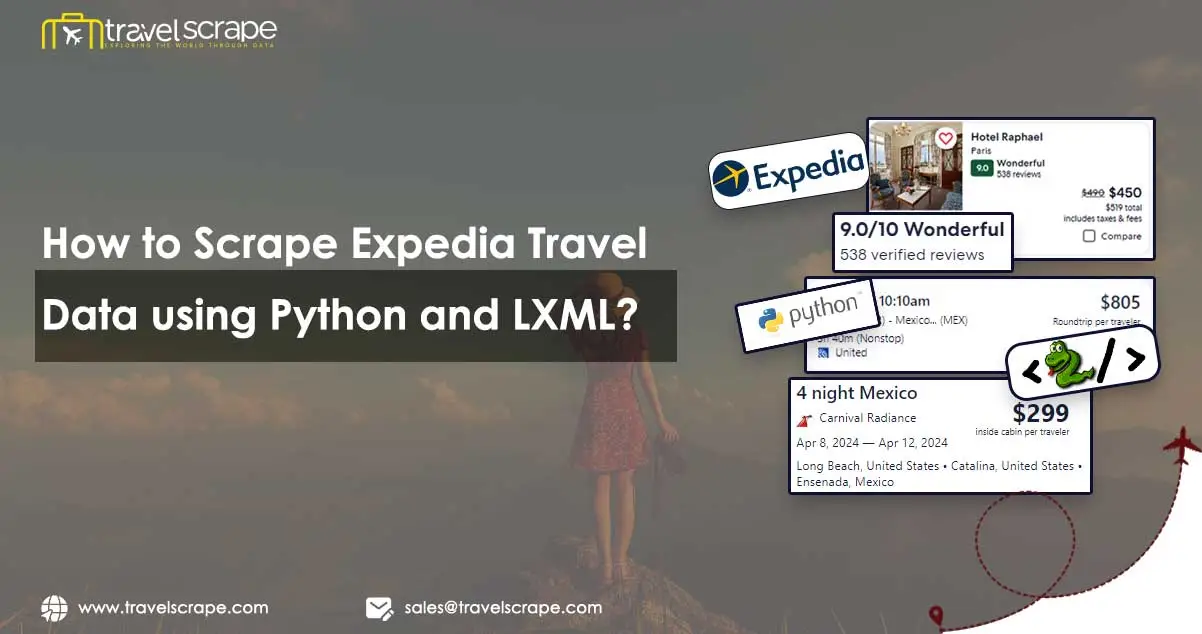
Web scraping Expedia travel data using Python and LXML can be a powerful way to gather information for various purposes, from market research to price comparisons. However, it's crucial to be aware of the legal and ethical considerations involved in web scraping, and to comply with Expedia's terms of service. In this comprehensive guide, we'll walk through the process of scraping Expedia travel data using Python and the LXML library.
Why Scrape Expedia Travel Data?
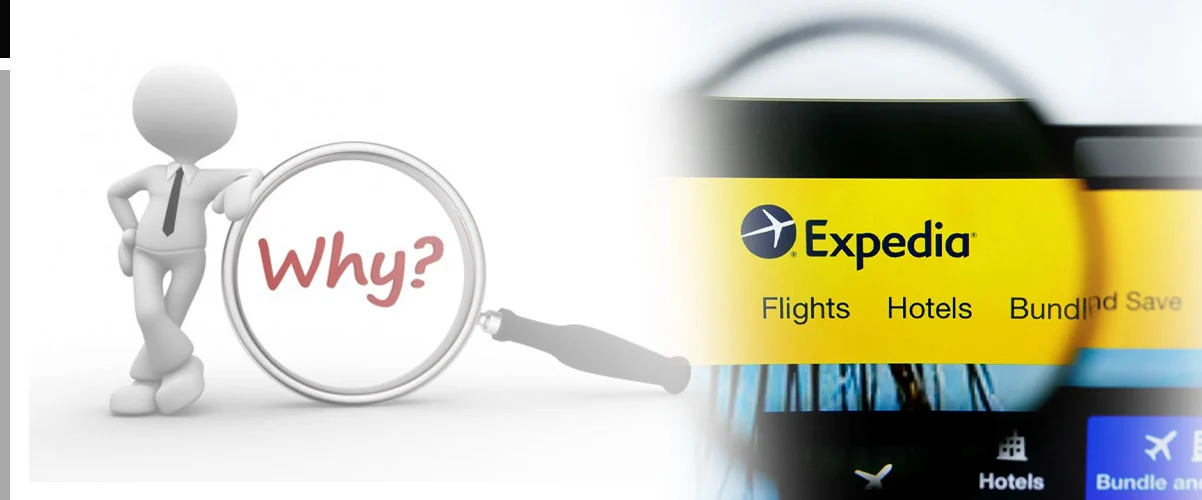
Scraping Expedia travel data using Python and LXML is a strategic approach that provides significant advantages for individuals and businesses involved in the travel industry. Expedia, being a prominent online travel agency, hosts a wealth of information on hotels, prices, and amenities. Leveraging web scraping techniques allows you to tap into this valuable data source for various purposes, from market analysis to personalized travel recommendations.
Competitive Market Insights
- Scraping Expedia travel data provides businesses with a competitive advantage by offering insights into market trends, competitor pricing strategies, and customer preferences.
- Analyzing this data enables businesses to make informed decisions, optimize offerings, and stay ahead in the dynamic travel industry.
Optimized Pricing and Offerings
- The scraped information allows businesses to track pricing trends, ensuring they set competitive prices for their services.
- By understanding customer preferences and amenities, businesses can optimize their offerings to meet the demands of the market.
Informed Consumer Decisions
- Individuals can leverage scraped Expedia data to compare hotel options, prices, and reviews more effectively.
- This empowers consumers to make informed decisions, ensuring they get the best value for their money when planning travel accommodations
Real-Time Updates for Users
- Expedia hotel data scraping supports the development of applications that offer real-time updates on hotel prices, availability, and reviews.
- Users benefit from having access to the latest information, enhancing their travel planning and booking experiences.
Customized Applications and Services
- Developers can use scraped data to create customized travel applications that cater to specific user needs.
- These applications provide users with a centralized platform for comprehensive travel planning and booking, integrating Expedia data seamlessly.
Data-Driven Decision-Making
- Scraping Expedia travel data using Python and LXML facilitates data-driven decision-making for both individuals and businesses.
- The flexibility and efficiency of these tools ensure that users can collect, process, and analyze Expedia data to derive actionable insights.
Ethical and Responsible Scraping
- It is crucial to approach web scraping ethically, respecting Expedia's terms of service and legal regulations.
- Responsible web scraping contributes positively to the travel ecosystem, enhancing transparency and accessibility for all stakeholders.
List of Data Fields When Scraping Expedia Data
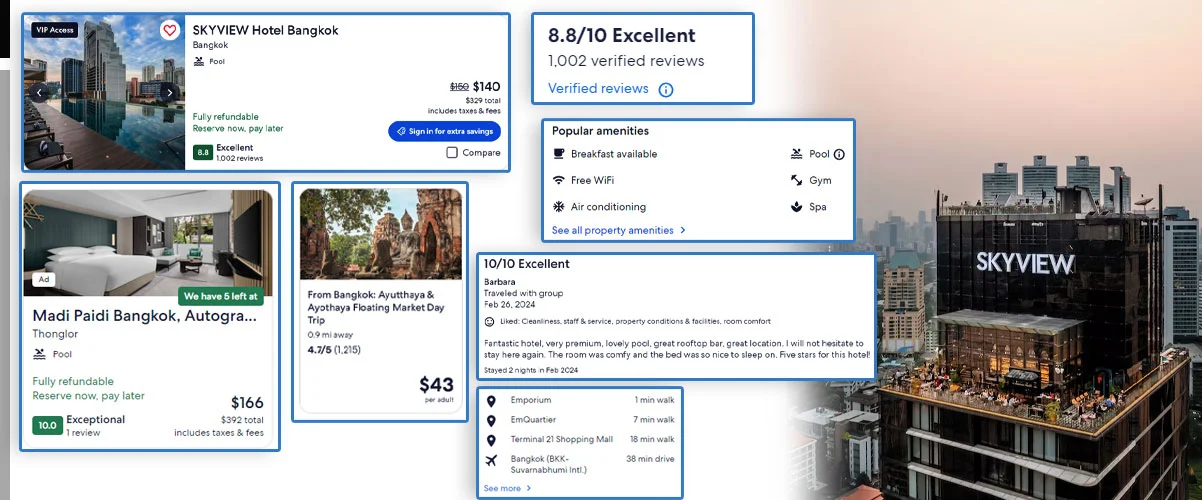
When scraping Expedia data, you can extract a variety of data fields to gather comprehensive information about hotels, prices, and amenities. Here's a list of common data fields to consider:
- Hotel Name: Extract the name of the hotel to identify the lodging facility.
- Hotel Rating: Retrieve the rating or reviews to gauge the quality of the hotel based on user feedback.
- Location: Capture the geographical location or address of the hotel for mapping and navigation.
- Price: Scrape the pricing information for different room types and booking options.
- Amenities: Extract details about the amenities provided by the hotel, such as Wi-Fi, parking, swimming pool, etc.
- Room Types: Identify and categorize the various room types available for booking.
- Availability: Determine the availability status for specific dates and room types.
- Cancellation Policy: Retrieve information about the hotel's cancellation policy for booking flexibility.
- Booking Conditions: Extract details regarding minimum stay requirements or special booking conditions.
- Check-in and Check-out Times: Capture the designated times for hotel check-in and check-out.
- Photos: Scrape URLs or images of the hotel to provide visual representations.
- Hotel Description: Extract a brief or detailed description of the hotel, including its features and history.
- Distance to Points of Interest: Retrieve information about the distance from the hotel to nearby attractions, airports, or landmarks.
- Map Coordinates: Capture latitude and longitude coordinates for mapping or navigation purposes.
- Special Offers: Identify any special promotions, discounts, or exclusive offers provided by the hotel.
- User Reviews: Scrape user reviews and ratings to understand customer experiences and satisfaction levels.
- Hotel Chain Information: If applicable, extract data about the hotel chain to understand its broader context.
- Property Type: Determine whether the property is a hotel, resort, boutique inn, etc.
- Contact Information: Retrieve the hotel's contact details, including phone number, email, or website.
Prerequisites
Python Installation:
Ensure that Python is installed on your system. You can download the latest version from the official Python website (https://www.python.org/).
Install Required Libraries:
Use pip, the Python package installer, to install the necessary libraries. Open your terminal or command prompt and run the following commands:
pip install requests
pip install lxml
Understanding the Structure of Expedia Pages
Before diving into the scraping process, it's essential to understand the structure of the Expedia pages you want to scrape. Inspect the webpage using browser developer tools to identify the HTML elements containing the data you need, such as hotel names, prices, and amenities.
Step-by-Step Guide
Import Libraries:
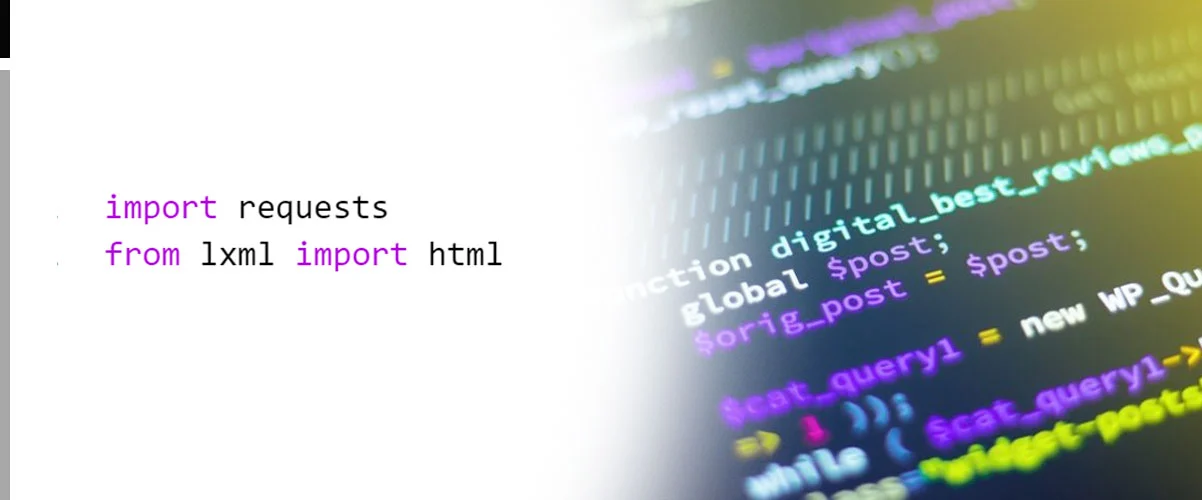
Send HTTP Request:
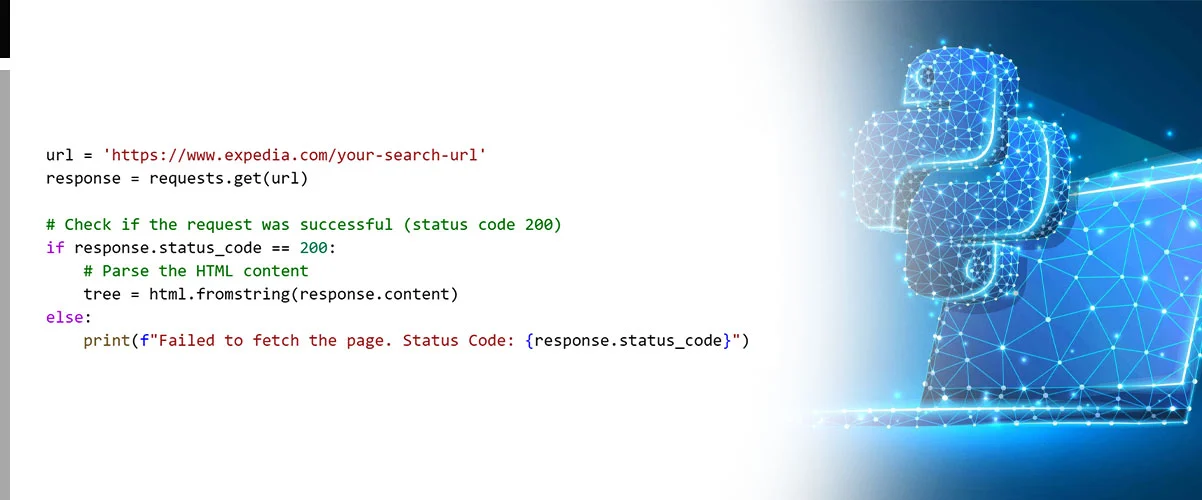
Extract Data:
Use XPath expressions to extract data from the parsed HTML. For example, to scrape hotel names and prices:
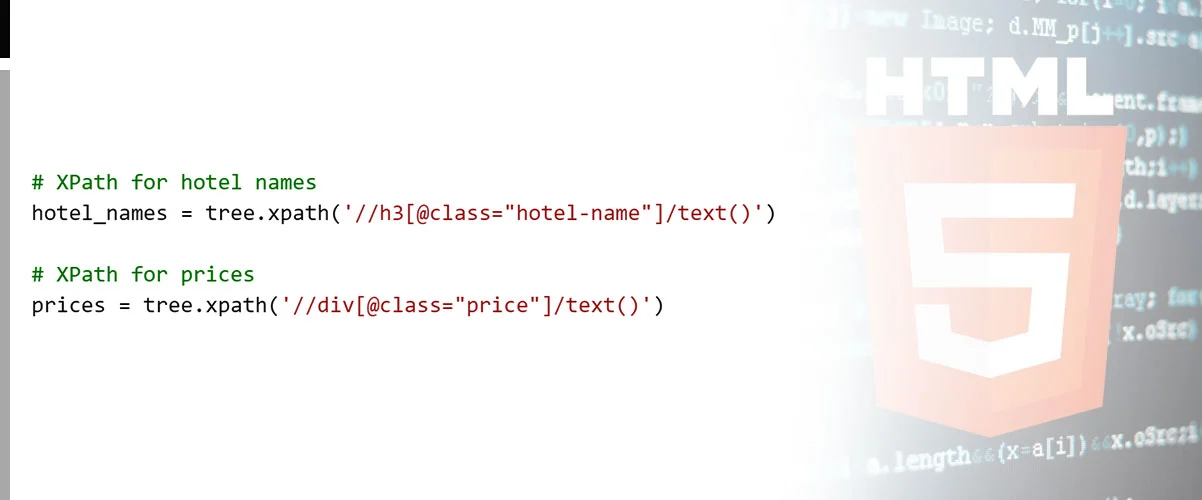
Process and Print Data:
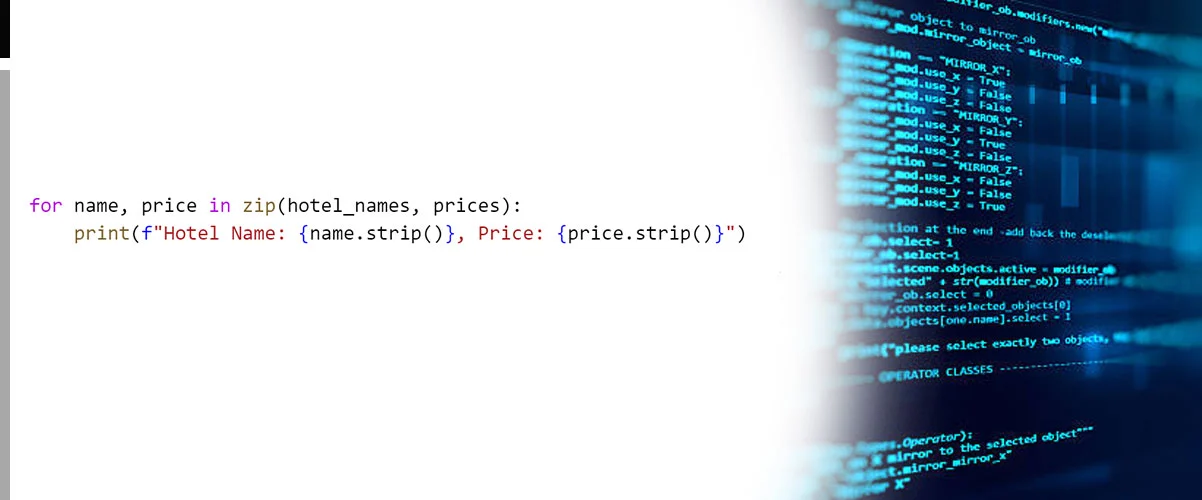
5. Pagination (if applicable):
If the Expedia search results span multiple pages, you'll need to handle pagination. Inspect the HTML to identify the pagination structure and modify your script accordingly.
Handling Dynamic Content
When dealing with dynamic content on websites like Expedia, which relies on JavaScript for loading elements, advanced tools like Selenium or Puppeteer are recommended. Unlike traditional web scraping tools, these tools allow for interaction with dynamically loaded content. Selenium, a browser automation tool, and Puppeteer, a headless browser automation framework, can simulate user actions, such as clicking buttons or scrolling, enabling the extraction of dynamically generated data. By incorporating these advanced tools into your web scraping workflow, you ensure a more comprehensive and accurate retrieval of information from Expedia, covering both statically and dynamically loaded content.
Legal and Ethical Considerations
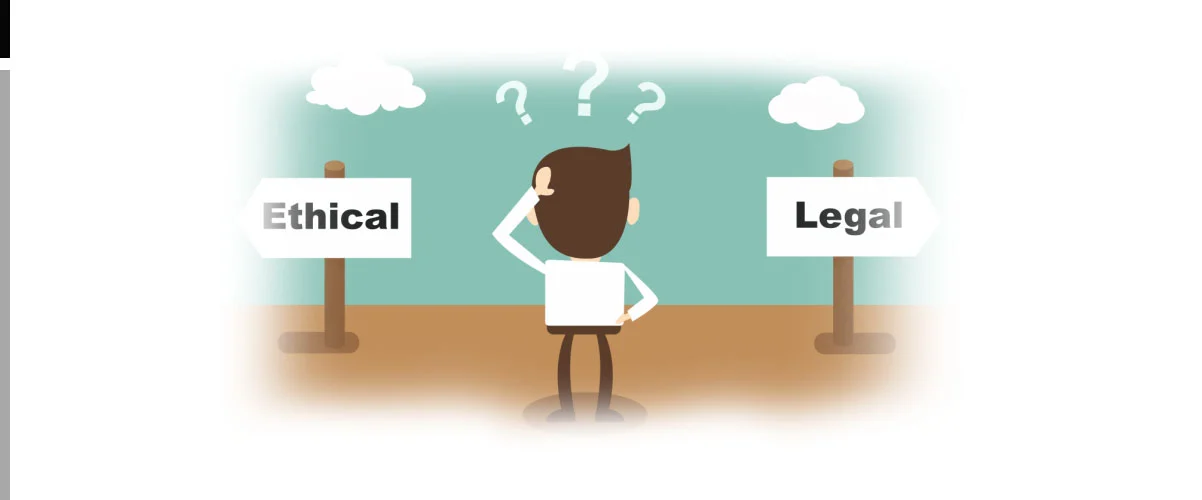
Responsible web scraping of Expedia travel data necessitates adherence to legal and ethical considerations. It is imperative to respect Expedia's terms of service and the guidelines outlined in the robots.txt file. To prevent server overload and potential disruptions, avoid making excessive requests within a short timeframe. Furthermore, ensure compliance with legal regulations governing web scraping activities, respecting privacy and intellectual property rights. Adhering to these principles not only promotes ethical conduct but also contributes to a sustainable and cooperative online environment, fostering positive relationships between data scrapers and website owners.
Conclusion
By following this guide, you can scrape Expedia travel data efficiently using Python and LXML. Keep in mind that travel aggregators is a powerful tool but must be used responsibly and ethically. For more details about how to scrape mobile travel app data, contact Travel Scrape today!